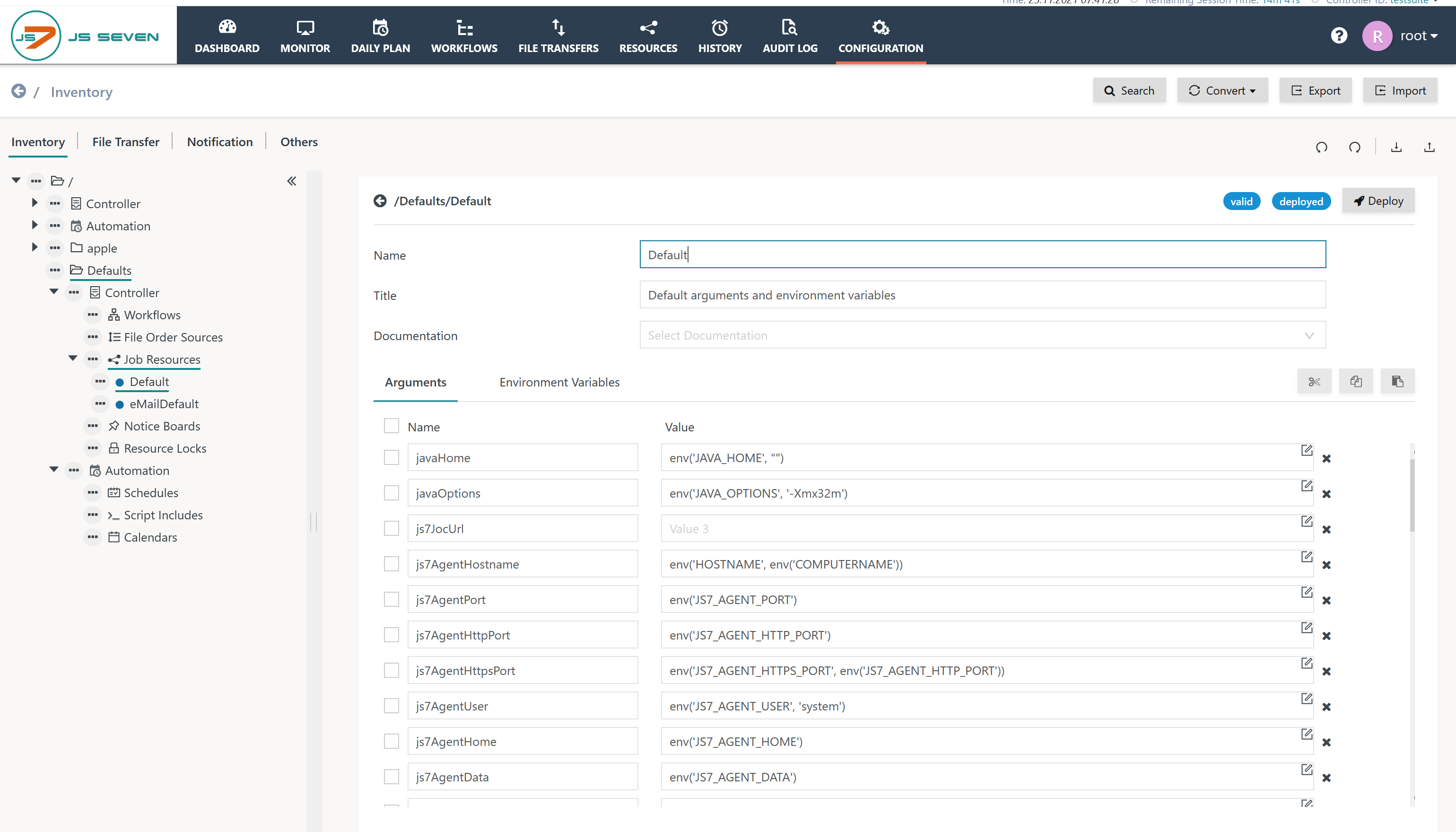Page History
| Table of Contents |
|---|
Problem
Some users observe the following error message when initially running jobs:
| Code Block |
|---|
UnknownKey: No such environment variable: COMPUTERNAME |
This problem can occur if example workflows have been used from JS7 - Download.
As a result some jobs of the example workflows fail with the above error message.
Analysis
The error message indicates that an environment variable with the name COMPUTERNAME is used in a job. However this environment variable does not exist.
- The reason is with the JS7 - Job Resources from the archive
Defaults.zipthat is offered from JS7 - Download. After import this archive is extracted to a JOC Cockpit folder with the nameDefaultsand a job resource with the nameDefault. Find details from JS7 - Job Environment Variables. The
Defaultjob resource includes an argument with the namejs7AgentHostnameand an environment variable with the nameJS7_AGENT_HOSTNAME. By default the argument is assigned this value:Code Block js7AgentHostname = env('HOSTNAME', env('COMPUTERNAME'))- The expression first makes use of a
HOSTNAMEenvironment variable (available for most Unix systems) and if this does not exist uses theCOMPUTERNAMEenvironment variable (available for Windows systems). Therefore running a job that makes use of theDefaultjob resource on a Unix OS that does not provide theHOSTNAMEenvironment variable causes the error. The
HOSTNAMEenvironment variable that is assumed from the Job Resource in fact is abashvariable and might not be available if some other shell such asksh,tshis used or if the Agent's account is not assigned thebashshell in/etc/passwd.
The assignment of the js7AgentHostname argument is performed in the Configuration view for Job Resources like this:
Solution
Modify the value of the js7AgentHostname argument like this:
| Code Block |
|---|
js7AgentHostname = env('HOSTNAME', env('COMPUTERNAME', "")) |
Explanation:
- The
env()function makes use of two arguments: the first argument specifies an environment variable, the second argument specifies a default value should the environment variable not exist. - Adding an empty default value - specified by two double quotes - as provided from the above example resolves the problem.
- To apply changes deploy the job resource after modification.
- As an alternative to this solution users can assign the
/bin/bashshell to the user account used by the Agent.
